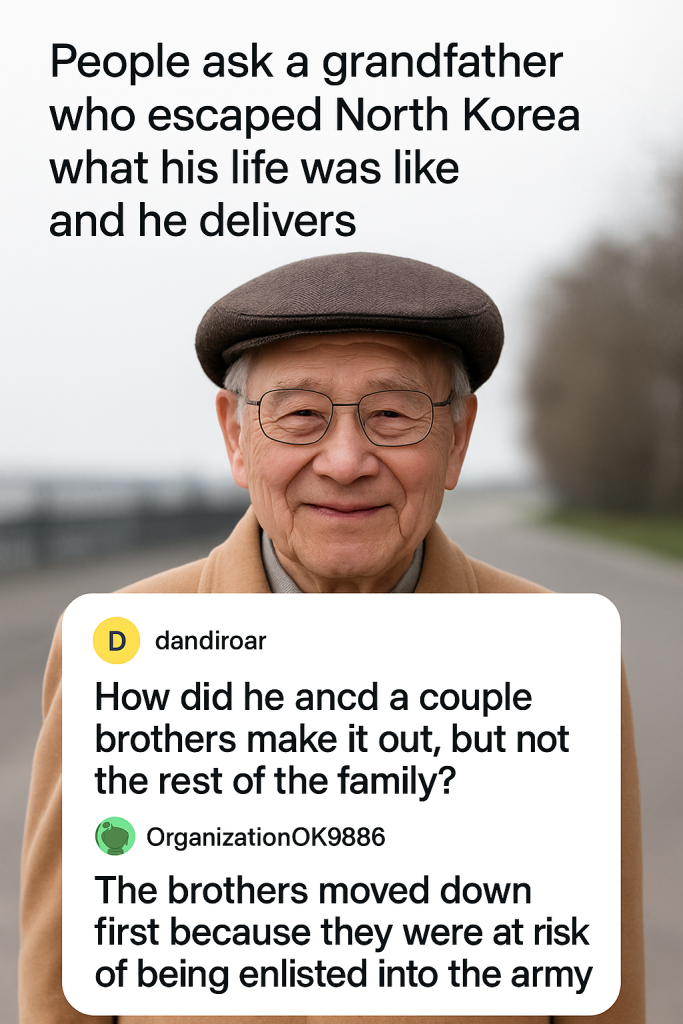In a rare and heartfelt interview this April 2024, a grandfather who escaped North Korea shared a vivid account of his life under the repressive regime and the extraordinary journey that led him and a couple of his brothers to freedom — while tragically, other siblings were unable to follow. His story, resonating widely on social media, offers a gripping glimpse into the brutal realities inside North Korea and the dangerous paths many defectors face.
The grandfather’s escape story is a testament to resilience and brotherly determination. Born in the 1950s, he endured decades of systemic oppression, famine, and fear. “Life in North Korea was like living in a constant shadow,” he explained. “You had to obey, or you risked everything — your family, your freedom, even your life.” He recalled the scarcity of basic necessities and the omnipresent propaganda that distorted truth and crushed hope.
Yet, amidst the hardship, he and two brothers developed a silent pact to find freedom. The interview detailed the painstaking preparations and the perilous journey through the borderlands, which are heavily patrolled and fraught with danger. Smugglers, bribery, and treacherous terrain marked each step of their escape, compounded by the constant threat of capture — which would have meant certain imprisonment or worse.
“It was not just about leaving — it was about surviving every moment along the way,” the grandfather reflected. Unlike many defectors who flee alone, their collective effort and trust were critical. They left behind their parents and other siblings, some of whom never managed to escape, underscoring the painful sacrifices involved.
His narrative also highlighted the psychological scars carried by defectors. Crossing into China first, often a transit point, brought new challenges, including fear of repatriation. “Every day was a test of courage,” he said. Eventually, they reached South Korea, where the grandfather rebuilt his life and found a community of fellow defectors.
The grandfather’s story has sparked broad discussion about the ongoing human rights abuses inside North Korea and the complex international issues surrounding defectors. Many note that while his resilience is inspiring, the tragedy of family separations and lost lives persists.
In addition to offering hope, his candid account educates global audiences about the harsh realities faced by millions in one of the world’s most secretive states. It also encourages empathy and advocacy for improved refugee protections and humanitarian aid.
This rare glimpse into the personal experience of a North Korean defector grandfather reminds us of the power of human spirit against oppression — and the high cost of freedom. As his story circulates online, it invites deeper reflection on the ongoing plight of those who remain trapped behind one of the globe’s most fortified borders.


